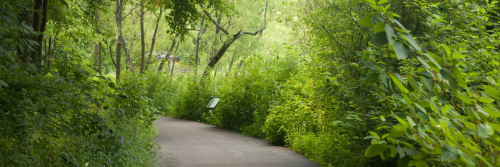Rachel Barenblat's Blog, page 73
June 12, 2018
Even legal limbo can be spiritual
...I blinked and the judge was wishing us well in whatever may unfold next for each of us. We walked out of the courtroom, and I was so dazed that I tried to put my purse back through the security scanner even though I know they don’t search you on the way out of the building. We agreed on the precise time and location of our next kid hand-off. We got into our separate cars and drove away...
That's a glimpse of my latest essay for The Wisdom Daily: reflections on the spiritual valance of being in legal limbo, and finding holiness in life's transitions.
Read the whole thing here: Finding what lifts my spirit as I wait for my divorce to be finalized.

The Sabbath Bee
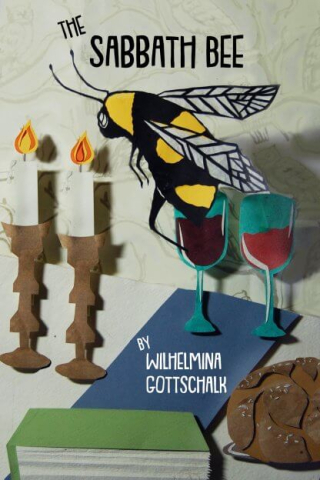 "Shabbat is different every week because we are different every week. Sometimes Shabbat shows up with dancing shoes, other times with a cup of cocoa and a bedtime story," writes Wilhemina Gottschalk in her introduction to The Sabbath Bee, her luminous new collection of prose poems, just released by Ben Yehuda Press. (It's part of the same Jewish Poetry Project beneath whose umbrella my Texts to the Holy was published earlier this year.)
"Shabbat is different every week because we are different every week. Sometimes Shabbat shows up with dancing shoes, other times with a cup of cocoa and a bedtime story," writes Wilhemina Gottschalk in her introduction to The Sabbath Bee, her luminous new collection of prose poems, just released by Ben Yehuda Press. (It's part of the same Jewish Poetry Project beneath whose umbrella my Texts to the Holy was published earlier this year.)
"Some weeks Shabbat might be happy to give me a quick hug and let me return to my conversation with friends, while other nights the prospect of a mystical joining is so exhilarating that Shabbat and I sneak away together to the nearest janitor's closet."
And that's just the introduction.
I adore this book of prose poems. If you've picked up a copy of the book, you already know that, because here's the blurb I offered for the back:
"Torah, say our sages, has seventy faces. As these prose poems reveal, so too does Shabbat. Here we meet Shabbat as familiar housemate, as the child whose presence transforms a family (sometimes in ways that outsiders can’t understand), as a spreading tree, as an annoying friend who insists on being celebrated, as a child throwing water balloons, as a woman, as a man, as a bee, as the ocean… Through the lens of these deft, surprising, moving prose poems, all seventy of Shabbat’s faces shine."
I love this book because these prose poems are familiar and surprising all at once. I love it because it shows how Shabbat can be different for us every time she comes, and it offers a window into what it can feel like to welcome Shabbat week after week: with bliss and with frustration and with joy.
Shabbat in this volume is a bride, a husband, a child, a storm, a blanket, a lover, a pair of dancing shoes. In one of the most delightfully surprising prose poems in the volume, Shabbat is a person and I become a puppy in her arms.
Many of the pieces in this volume stand on their own as delicious little prose poems, but for me the real beauty of the collection is how each prose poem reflects and refracts the experience of Shabbat in conversation with the others. No one of these poems could stand in for the whole collection, because part of the point is that the whole is more than the sum of its parts.
If you are a fan of prose poems (which I am, and have been ever since David Lehman introduced me to them in graduate school some 20 years ago!), and/or if you know Shabbat, or love Shabbat, or perhaps once flirted with Shabbat, this book is worth your time. Available for $9.95 at Ben Yehuda Press.

June 10, 2018
A Shabbes in the Garden
Our sages compare Shabbat to a garden. Shabbat is called both a foretaste of the world to come and a return to Eden, the primordial garden of abundance and bliss. What more perfect place to experience the sweetness of Shabbes than a garden?
This past Shabbat I joined with folks from Temple Beth-El of City Island and Shtiebl (and their spiritual leaders Rabbi David Markus and Rabbi Ben Newman) for Shabbat in the Garden, a prayerful adventure to delight body, heart, mind, and soul.
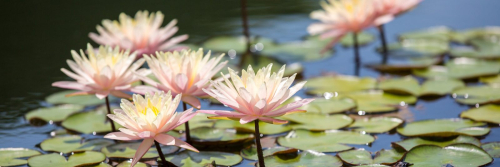
We met at the front entrance to the New York Botanical Garden. After getting ourselves organized, we walked in contemplative silence -- marveling at the spectacular beauty all around us -- until we reached a shady place where it made sense to stop.
Beneath a spreading tree we sang a shehecheyanu: "Oh, Mystery • Grace unfolding • Oh, Miracle • It's You alone. / Oh, Mystery • Grace unfolding • Oh, Miracle • You bring us home!" Humming that melody we walked some more, past greenery and blooms.

Beside a tiered reflecting pool we stopped again in the shade. After the story of Reb Zalman's daughter asking "When we're awake, can we wake up even more?" we sang "Awaken, arise to the wholeness of your being!" We woke up some more.
More walking, more quiet singing. Where we stopped to stretch up to the sky and pray nishmat kol chai, "the breath of all life praises Your name!" we were accompanied by the song of a waterfall and the basso profundo of a bullfrog in the pond.

Beneath a shaded pavilion overlooking a meadow dotted with butterflies we sang the bar'chu. "As I call on the light of my soul, I come home." Reminded of the angel who encourages every blade of grass to grow, we sang holy holy holy like the angels do.
We sang Mi Chamocha, the song that Torah teaches we sang upon crossing the Sea, as we crossed the Bronx River. Our Amidah, the standing prayer, unfolded in silence overlooking the spectacular riotous blooms of the Peggy Rockefeller Rose Garden.
On an enormous expanse of rock we listened to mystical teachings on the week's Torah portion. We rose there to sing our closing prayers. We blessed wine and challah. And then we savored a celebratory oneg and impromptu conversation about God.
And when our community time together was done, Rabbi David and I walked through the most spectacular rose garden I have ever seen. More kinds of roses than I can describe, every shape and configuration and color and scent, and all of them in bloom.
All photos courtesy of the New York Botanical Garden.

June 8, 2018
A blessing for blowing the candle out
 I love sitting with my son on the mirpesset in the evenings. He doesn't have a ton of patience for just sitting and watching the sky change colors, but I can usually entice him out for at least a little while.
I love sitting with my son on the mirpesset in the evenings. He doesn't have a ton of patience for just sitting and watching the sky change colors, but I can usually entice him out for at least a little while.
Last night we sat on the mirpesset and I lit the citronella candle on his request. When it came time to go inside for his bath, he wanted to blow it out, but then he paused.
"We should say a blessing," he suggested.
Generally speaking we make blessings when we light candles, not when we extinguish them, but I didn't say that. (I don't ever want to quash his spiritual impulses.) I said, "Okay, go for it."
"Baruch atah Adonai, eloheinu melech ha'olam," he began ("Blessed are You, Adonai our God, sovereign of creation" -- the opening words to many Jewish blessings), and then paused. "Wait. I don't know the rest of the words."
"You get to use your own words," I told him.
He thought for a moment.
"Thank You God for the light of the candle. When I blow it out, may Your strength flow through me," he intoned.
"Beautiful," I murmured.
And then he blew out the candle. (Which took a few tries; they're designed to be resistant to breezes!) When the flame went out, a plume of smoke rose and curled and danced up and around, revealing hidden currents. "Look, Mom," he said, "there's God's strength, flowing through the air!"
Talk about sanctifying the ordinary.
Thank You, God, for the privilege of nurturing this extraordinary soul.

June 6, 2018
A week of learning, planning, and dreams
A week of Torah study lishma (for its own sake), hevreschaft (collegiality and deep friendship), dreaming about the Jewish future and how best to empower people to build that future together, visioning and strategic planning for Bayit: Your Jewish Home, and also the beach and the sun and great food and davenen and singing: sounds like olam ha-ba / the World to Come!
It may indeed be a description of heaven. (At least for me -- I can't think of a sweeter way to spend a week.) It's also a description of what I'll be doing on my summer vacation! Bayit's founding builders are renting a house on the seashore during the first week of July, and we'll spend a week together learning, praying, playing, and dreaming big about the things we hope to build.
We're bringing teachers from the Reconstructionist Rabbinical College and Yeshivat Maharat so we can nourish our souls with Torah study. We'll do vision and strategic planning work to support not only the work we're already beginning to do (in publishing, in ritual resources, and in innovation / R&D) but also the work that is as-yet only in the early dreaming stages.
We'll dive into big questions: what does the Jewish world most need? What does genuine innovation look like, and how can it be fostered and shared? What structures will best support the flowering-forth of renewal in Judaism and in spiritual life writ large? I can't imagine more meaningful conversations to be having -- nor better hevre with whom to build on those conversations.
The learning and visioning week will be once again be sponsored by The Jewish Studio, under whose umbrella Bayit is housed. I don't know what I'm most excited about: the Torah study, the seashore, the time with my hevre, the conversations, the vision and strategic planning work... or maybe the integration of all of those, which will add up to more than the sum of their parts.

June 2, 2018
Cloud and fire, waiting and leaping
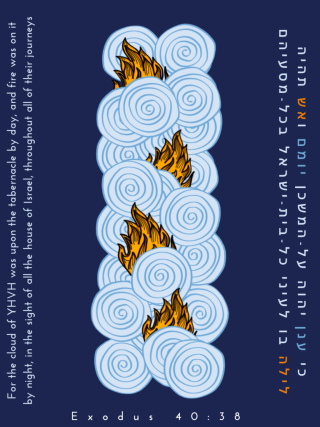 In this week's Torah portion, B'ha'a'lot'kha, we read again about the cloud of divine presence that hovered over the mishkan, the portable sanctuary our spiritual ancestors built in the wilderness. The divine presence took the appearance of a cloud by day and a fire by night. When the cloud settled, we made camp; when it lifted, we packed up and resumed our journeying.
In this week's Torah portion, B'ha'a'lot'kha, we read again about the cloud of divine presence that hovered over the mishkan, the portable sanctuary our spiritual ancestors built in the wilderness. The divine presence took the appearance of a cloud by day and a fire by night. When the cloud settled, we made camp; when it lifted, we packed up and resumed our journeying.
"Whether it was two days or a month or a year -- however long the cloud lingered over the mishkan —- the Israelites remained encamped and did not set out; only when it lifted did they break camp."
The commentator known as the Sforno -- Ovadia ben Jacob Sforno, born in Italy in 1475 -- notes that the Torah repeats this point five times. Because nothing is extraneous in Torah, these repetitions must be there to draw our attention to something incredibly important.
So why is Torah highlighting this point so strongly? Maybe to teach us something about discernment and journeying.
The journey undertaken by our ancient ancestors in the wilderness isn't just a historical story about something that happened to them back then. (Or maybe an a-historical story.) It's also about our lives in the here and now. And in our lives there are times when we need to pack up and move, and there are times when we need to pause and discern what should come next.
The paradigmatic journey taken by our ancient ancestors was from slavery to freedom to covenant. From constriction to liberation to connection with something greater than ourselves. We too take that journey, not once but time and again.
Unlike our ancient ancestors, we don't have the visual cue of a giant pillar of cloud by day and fire by night to tell us when it's time to sit with what is, and when it's time to leap into the unknown. That's discernment work we have to do on our own -- maybe with a trusted friend, or a rabbi, or a spiritual director. (Or all three.)
The new Jews we're celebrating this morning know something about sitting with what is, and they also know something about leaping into the unknown. Each of them spent a long time discerning who they are and what they need and whether the desire for change was motivated in the right ways. Each of them spent time beginning to learn about Judaism before making it their spiritual home. (I say "beginning to learn" because none of us is ever finished learning about the richness and depth of our tradition -- including me.)
And each of them decided, at a certain point, that it was time to take the plunge. It was time to stop waiting and reflecting. It was time to embrace the next step on their journey.
In other words: they enacted precisely the spiritual journey Torah describes our ancient ancestors taking. And the same can be true for all of us.
This week's Torah portion invites us to cultivate the quality of emunah, trust. Trust that if we're in a period of waiting and discernment, we'll be able to tell when it's time to get moving and in what direction to move when the time comes. Trust that if we're in a period of leaping, the new chapter to which we are leaping will be one of sweetness and growth. Trust that we're headed toward a place of promise, of abundance and sweetness -- and that we can always course-correct as needed.
And I think it also invites us to cultivate a quality of inner listening. Because we don't have the pillar of cloud by day and the pillar of fire by night, we need to listen for the subtle movements of heart and soul.
This can be one of the gifts of Shabbat: time to discern how we are and where we are and where we need to be. It can be one of the gifts of prayer: in Hebrew, l'hitpallel, literally "to discern oneself." It can be one of the gifts of spiritual practice writ large: learning how to listen for when it's time to sit still and when it's time to get going, learning how to listen for who and where God is calling us to be.
With gratitude to Rabbi David Markus for his teachings Waiting to Exhale and The Soul of Waiting.
This is the d'varling I offered at my shul this morning (cross-posted to my From the Rabbi blog.) Image: Steve Silbert's Visual Torah sketchnote from parashat Pekudei, an earlier moment in Torah that introduces us to the pillar of cloud and fire.

June 1, 2018
Ordinary days
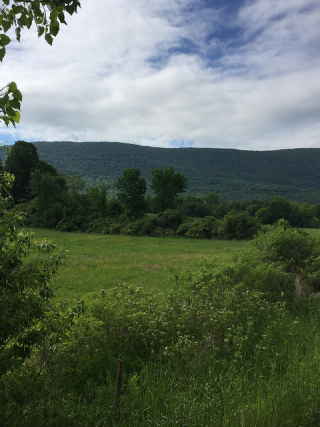 Where we live, school won't end until late June, but the end is beginning to be in sight. My kid is starting to talk about becoming a "rising third grader," which boggles my mind. I'm finalizing plans for his day camp adventures this summer,: there will be scavenger hunts and arts & crafts and swimming in ponds surrounded by rolling green hills. The first distribution week at our beloved CSA is coming up soon, and I'm eager to return to the profoundly holy spaces of its fields and gardens and barn.
Where we live, school won't end until late June, but the end is beginning to be in sight. My kid is starting to talk about becoming a "rising third grader," which boggles my mind. I'm finalizing plans for his day camp adventures this summer,: there will be scavenger hunts and arts & crafts and swimming in ponds surrounded by rolling green hills. The first distribution week at our beloved CSA is coming up soon, and I'm eager to return to the profoundly holy spaces of its fields and gardens and barn.
All of these are sweet -- and none of them is particularly noteworthy. But they are part of spiritual life even so. Ordinary days are part of spiritual life too: not just the highs and the lows, but the stretches in between. These days offer the challenge of sanctifying the ordinary: walks on the dirt roads behind my condo, making supper for my child, unpacking groceries, watering the plants on my small mirpesset where last fall and the fall before I set up a sukkah festooned with tinsel and sparkling lights.
From the morning's modah ani and m'chayei ha-meitim to the evening's ma'ariv aravim, every day offers countless opportunities to wake up and offer blessing -- and countless opportunities to get bogged down (in scheduling, laundry, the frequently grief-inducing daily news) and forget. It can be easy (or easier) to offer words of blessing at high times. And at low times, the heart may demand to cry out and be heard (mine often does). But much of life is in between those two extremes.
And that in turn means that much of the work of spiritual life is in that in-between place. It's the work of staying mindful, cultivating gratitude, doing what I can to make the world a better place, reminding myself to rest. It's the work of the everyday, the ordinary, the weekly rhythm of Shabbat and chol. It's the work that happens in traffic (even though where I live "traffic" is likelier to mean a slow tractor on route 43 than a surfeit of cars on the road) and waiting to check out at the grocery store.
It's not glamorous. It's not the stuff of soul-stirring sermons. But it is the stuff of daily life. It's like parenting: my kid's childhood is made up of mornings and bedtimes and school days and play dates. It's easy to focus on the big milestone moments: starting school, or going on a big vacation, or becoming b'nei mitzvah... but childhood is more than those, and the work of being a parent is more than those. Parenting is in the little everyday things that make up the backdrop against which the big milestones unfold.
And spiritual practice is in the little everyday things that make up the backdrop against which the big milestones unfold. Now that we've made it through Shavuot, the celebration of covenant that is the culmination of the journey of freedom we began at Pesach, the Jewish calendar quiets down for a while. Just in time for northern-hemisphere summer, a season of long days and splashing in the pool and doing all of the quiet ordinary things that make up a life. Here's to sanctifying ordinary time.
Image: the beginnings of summer where I live.

May 26, 2018
And bring you peace
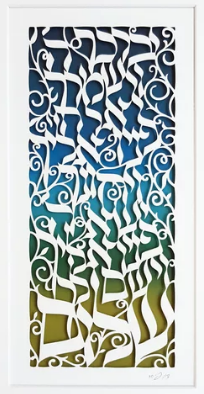 In this week's Torah portion, Naso, God speaks to Moshe and tells him to transmit to Aharon the following words of blessing to give to the people:
In this week's Torah portion, Naso, God speaks to Moshe and tells him to transmit to Aharon the following words of blessing to give to the people:
יְבָרֶכְךָ֥ יְהוָ֖ה וְיִשְׁמְרֶֽךָ / May God bless you and keep you.
יָאֵ֨ר יְהוָ֧ה ׀ פָּנָ֛יו אֵלֶ֖יךָ וִֽיחֻנֶּֽךָּ / May God's presence go before you and be gracious to you.
יִשָּׂ֨א יְהוָ֤ה ׀ פָּנָיו֙ אֵלֶ֔יךָ וְיָשֵׂ֥ם לְךָ֖ שָׁלֽוֹם / May God's presence be always with you and bring you peace.
Two things strike me about this passage this year.
The first is the Divine game of telephone. Granted, this is a common game of telephone at this point in the Torah: God speaks to Moshe and tells him to tell us pretty much everything. But in this instance, I see an extra layer of meaning in the way the transmission comes through. God telling Moshe to tell Aharon to tell us becomes an example of a deeper truth: blessing is connective. Blessing is relational. Blessing originates with God, but we speak it into being through our connections with each other.
The other thing that strikes me is the content of the blessing. For many of us this is a familiar text. Some of us maintain the practice of saying it to our children every Friday night. In some communities the rabbi offers it as a closing benediction after every service. I say these words to every b'nei mitzvah kid who stands on our bimah. At last weekend's conversion, I offered these words to our new Jews. These words are so familiar we may not pay a ton of attention to them most of the time.
But notice:
The text promises that God will bless us and keep us -- but it doesn't claim that God will keep us free from struggle or change.
The text promises that God's presence will accompany us with grace -- not just "graciousness," in the sense of gracious hospitality, but grace, חן / chein, that unearned and un-earnable flow of abundance from on high -- but it doesn't claim that grace will spare us life's ups and downs.
The text promises that God will be with us and will bring us wholeness and peace -- but it doesn't claim that "peace" means perfection or an end to our spiritual work or our spiritual growth.
Elsewhere in this parsha we read about the ritual for when spouses suspect each other of infidelity and there has been a breakdown of their relationship that may or may not be reparable. And we read about the promises of the nazir, one who makes certain commitments to God for a stated period of time. With this juxtaposition, Torah seems to be saying: the promises we make to each other as human beings may or may not endure. Our human promises may be temporary or time-limited.
But the promise that God makes to us is not time-limited or temporary. When we stand as channels of blessing for each other, when we speak these words of blessing to one another, we invoke God's accompanying presence and grace and care. Always.
God's presence and grace and care can't protect us from challenges or disappointment... but they will always endure. God will always keep our souls safe in the palm of Her hand. God's presence always accompanies us and showers us with love we cannot earn and cannot lose, no matter what. And that presence always offers us access to wholeness and peace: not through pretense, but through authenticity and realness.
Because שלום / shalom doesn't just mean the absence of conflict. It means the presence of wholeness. And wholeness doesn't come when we put a bandaid over our sorrows: wholeness comes when we allow ourselves to be real, in our sorrow and in our joy. Putting a bandaid over our sorrows (spiritual bypassing) is fragmentation: I feel this, but I will pretend that. And fragmentation is the opposite of wholeness. Wholeness requires us to feel what is, all of what is, with all that we are.
So I say to you today:
May you feel God's presence blessing you and keeping you, no matter what curveballs life throws your way.
May you feel God's presence accompanying you and steeping you in a love that can't be lost.
May God's accompanying presence in your life bring you wholeness, now and always.
Amen.
This is the d'varling I offered at my shul this morning (cross-posted to my From the Rabbi blog.)
Image: a papercut of this passage by David Fisher.

May 24, 2018
Blessed
In going and in returning
even when where you go
isn't what you expected,
even when where you return
isn't yet a world redeemed.
In sleeping and in waking.
You are loved
when you lie down
and when you rise up.
Rise up
like a hummingbird
in prayerful vibration.
There is nectar
to sustain you
in all your journeying.
In going and in returning. See the travelers' prayer.
When you lie down / and when you rise up. See Deuteronomy 6:5-9, which is part of the prayer known as "the v'ahavta," for its first words, "You shall love..."
Nectar. For a hummingbird, nectar is both sustenance and sweetness -- like the milk and honey to which Torah is compared.
What would it take to be able to really believe that sustenance and sweetness lie ahead: that our needs will be met, no matter where we go?

May 23, 2018
When surprises turn out just right: a conversion, though not as I planned
 Two years ago, before Shavuot, my friend Rabbi Brent Spodek asked me to serve on a beit din -- the rabbinic court of three who preside over Jewish legal matters -- for the purpose of taking part in welcoming a new soul into the Jewish people. Rabbi David Markus was the third member of the beit din. We gathered at Isabella Freedman before that year's Shavuot retreat, met with the prospective Jew-by-choice for meaningful conversation, then accompanied him to Lake Miriam for his mikvah immersion.
Two years ago, before Shavuot, my friend Rabbi Brent Spodek asked me to serve on a beit din -- the rabbinic court of three who preside over Jewish legal matters -- for the purpose of taking part in welcoming a new soul into the Jewish people. Rabbi David Markus was the third member of the beit din. We gathered at Isabella Freedman before that year's Shavuot retreat, met with the prospective Jew-by-choice for meaningful conversation, then accompanied him to Lake Miriam for his mikvah immersion.
One year ago, before Shavuot, Rabbi David convened the same trio for the same purpose. We met again in one of the yurts beside the lake at Isabella Freedman; had a deep and rich conversation with the woman who was choosing Judaism; then accompanied her to the same lake before that year's Shavuot retreat. Both of these were extraordinary experiences for me as a member of the beit din. We joked last year that since each of them had brought someone now, it would be my turn in 5778.
At the time I truly thought we were all kidding. I've been a rabbi since 2011 and no one had ever sought to study toward conversion under my auspices. And then two people independently came to me seeking study toward conversion to Judaism. I wanted them to have an experience of community, so I opened up a class and encouraged others to join. And it became clear that this year it would actually be my turn to be em beit din and to convene my colleagues for this humbling and holy purpose.
I had a lot of time to plan how I wanted the beit din and the conversion to flow, and I had everything all planned out. The beit din and immersion would take place at a beautiful spot: Surprise Lake, the lake at the Hudson Valley summer camp of the same name where our three congregations were convening for a Shavuot retreat. My whole Journey Into Judaism class signed up for the Shavuot retreat and made plans to come down early to support their classmates who were taking the proverbial plunge.
And then storms and tornadoes tore through the area and Surprise Lake lost power, and the retreat was canceled, the day before the beit din. Some scrambling ensued. My rabbinic colleagues moved heaven and earth to make a Plan B possible, including helping us find lodging in a region where every hotel and motel is booked solid with folks still taking refuge from storm damage. And on Friday afternoon, my whole Journey Into Judaism class (plus family members) drove down to the Hudson Valley.
We met at the mikvah in Poughkeepsie, which is housed in an Orthodox shul. The shul was opened just for us, and a mikvah attendant showed us around. My students gathered in a classroom, and the beit din gathered in the shul library, and one by one we met with the candidates for conversion. Then we met with them together. And then we held a tallit-chuppah over their heads and sang Reb Zalman's mother's niggun (which we had sung often before class) as we walked down the hall to the mikvah.
The mikvah attendant (colloquially known as a "mikvah lady") helped us ensure that the immersions were kosher to her usual standards. The men on the beit din stood outside the door of the mikvah, listening for the splash and the sound of our voices from inside. Each of my three candidates stepped down into the water, immersed and made the blessing, and immersed again, and immersed a third time, and emerged reborn as a woman fully in the living flow of Jewish spiritual and national identity.
And then we returned to the library to sign their documents and bless them, and then we all drove to Rabbi Brent's shul in Beacon. There we were awaited not only by a celebratory potluck Shabbat but by a large crowd from his congregation who welcomed our new Jews into the room with a rousing chorus of "Siman Tov u-Mazal Tov." (I don't think they expected that -- to be so heartily welcomed by a room full of strangers -- though of course they weren't strangers; they were fellow Yidden.)
It wasn't the day I had spent so long planning. We weren't outside in the sanctuary of nature, immersing in a natural body of living waters surrounded by trees -- instead we were in a windowless interior room in a shul none of us had ever seen before. There was an unfamiliar woman inspecting them for stray hairs before their immersions, and giving them a lace doily to cover their heads to make the immersion bracha. And because all of this was in God's hands and not mine, it was absolutely perfect.
We'd talked a lot about how when one joins the Jewish people, one is joining the gantze mishpacha, the whole clan: not just my shul, not just places where the practice and custom matches what we do in our small-town Reform-Renewal community, but the whole thing. When one joins the Jewish people, our Conservative and Orthodox and Reconstructing and post-denominational cousins become one's family too. The Jewish family is big, diverse, complicated, sometimes exasperating, and sweet.
I couldn't have dreamed up a better example of that truth than arranging to immerse on 24 hours' notice at an Orthodox mikvah. Some of my students had never set foot in an Orthodox synagogue before (there isn't one in Berkshire County). But the wonderful people at Schomrei Israel opened their doors to us without hesitation, because that's what you do for fellow Jews. And then we showed up at an independent synagogue served by a Conservative-ordained rabbi and we were welcomed there too.
No matter how broad our conversations in our Journey Into Judaism class, they couldn't convey the experience of being part of this multifaceted people -- of being welcomed into this multifaceted people, with our wide range of customs and practices, modes of dress and styles of observance, melodies and prayerbooks. I couldn't convey in words what it feels like to walk into a strange synagogue in a strange city and feel like kin even when we differ, because our Jewishness connects us.
Last week's storms and the damage they caused threw a giant monkey wrench into my careful plans, and the way the day turned out was exactly what we needed. It taught my students something I couldn't have taught them on my own. It gave two communities the opportunity to enact the mitzvah of hachnasat orchim, welcoming guests. It gave us a lived experience of feeling welcomed and cared-for and part of something much bigger than even the trio of shuls that had planned a joint retreat.
I'm endlessly grateful: to the folks at Schomrei Israel and Beacon Hebrew Alliance for welcoming us, for my hevre on the beit din for joining me in this holy work, to the members of my class for driving down to support their classmates, to the three who entrusted me with their journey, to Soferet Julie Seltzer for lending us her apartment for a night, and to the Holy One of Blessing Who ensured that the whole day unfolded exactly the way it was meant to, with surprises that turned out just right.

Rachel Barenblat's Blog
- Rachel Barenblat's profile
- 6 followers


